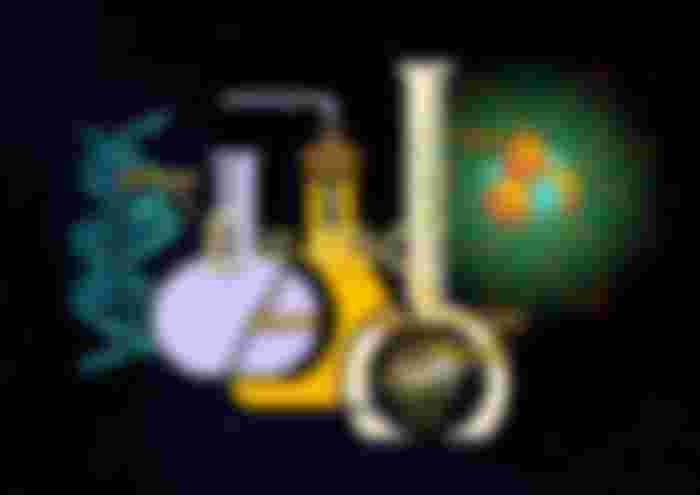A Glimpse Into The World Of Modern Science
The study of science is an ancient activity, that has been practiced since the dawn of humanity. But the modern science process, from beginning to end, differs from what most of us are used to in various ways. The world has turned into a new dimension. This is because modern science in the 21st century. Nobody could have imagined the incredible discoveries made in the field of science. And it will gradually change the way hundreds of thousands of people think and behave.
Modern science is fascinating. Seeing a scientist in action can be a decisive moment in shaping conversations about nature, culture, and technology we are presently having. A glance at what science has in store for us in the near future. It is not just a science fiction world. It is happening now and it has already been made possible by science.
The Field Of Science
The field of science is made up of people whose job is to observe nature and use the knowledge gained to create and enhance new forms of technology. The science process itself is a method of investigation in which theories are formed to explain the perceived natural phenomenon. These theories are then used to predict new and different observations from nature which can be tested in a repeatable way.
Theories are constantly being revised, challenged and debated. In this way, the scientific method is able to determine the most valid explanation for any given set of observations. Science is not a perfect method of investigation. There are many instances in which scientific laws do not fully explain the behavior of a natural process. Even when a scientific explanation is complete and accurate, there are always aspects of a situation, that are unknown and thus, not scientifically explainable.
It is a mistake to think of science as a set of facts, that can be known with certainty. Facts are the result of observations and experimentation. They are the raw material from which theories are formed.

The Process Of Science
The process of science is something that all scientists go through. But the methods by which they go about their work are not always the same. Science is a human activity that is shaped by the culture in which it is practiced. Therefore, each individual that practices science is shaped by their own experiences and thus the culture in which they live is reflected in their work.
The modern way of doing science is a distinctly western model that was systematically implemented during the enlightenment period. This model heavily emphasizes the use of reason, logic and the scientific method. Other models have been used throughout history, but these other methods are less well known, studied, or supported than the scientific approach.
The scientific method is a system for peer review of work that is both efficient and reliable. The process of peer review encourages criticism and encourages the evaluation of alternative explanations and the correction of mistakes. This process promotes the highest quality of work.
Peer review can be difficult due to the nature of the work. Most research is done in secret and thus it can be hard to get a second person to check the work of a peer. But it is an invaluable part of the process.
The Modern Way Of Doing Science
The modern way of doing science is an efficient and logical way of investigating the world around us. It is the most widely practiced form of science in the world. It is what most people associate with the word science. However, this is not the only way science can be done. There are many other models of science, that have been used throughout history. Each model has its merits and it is important to understand this.
The scientific method is not the only way to go about investigating the natural world. Other methods have been used that emphasize different aspects of the process. For example, some cultures place a greater value on intuition, others feel that creativity and experimentation are more important. These differences in value create a variety of different scientific paradigms, each with their own set of tools and methodologies.
This is why there are so many different types of scientists. Each one uses a different methodology to gain their results. Some are more theoretical, while others are more practical. When it comes to modern science, there are two paradigms that dominate the field: Objectivism and Relativism.
Objectivism
The objectivist philosophy holds, that nature and the Universe are made up of discrete objects that have certain inherent properties, which we can study and describe.
All of reality can be described in terms of these objects and their properties. In this way, reality is understandable. There are rules and laws that govern the behavior of everything in the Universe. There are exceptions to these rules, but the Universe as a whole tends to follow these laws.
The objectivist view of science is that there are real things out there in the world that we can study. These objects are the building blocks of nature and the Universe. They are the building blocks of everything that exists.
Relativism
The relativist philosophy holds, that there is no universally objective truth. All truth is relative to a particular perspective.
There are many different perspectives that can lead to a valid and true understanding of the world. Truth is not a single, discrete thing that we can point to and say, "This is the definition of truth." Truth is a spectrum that includes many different things, some of which may be closer to being false than others.
The goal of science, then, is not to find one truth, but many different perspectives on truth that can all be valid and true from different angles. When we study nature, for example, we do not study a single reality; we study many different realities, all at once. If we want to understand any one thing, we must study all things.
The Modern Scientific View
The Enlightenment view of nature and the Universe, along with the growth of humanism as a philosophy influenced the modern scientific approach to understanding the world.
The modern, scientific view of the world was developed during the Enlightenment. It emphasizes the use of reason, logic, and experimentation. These values were embraced during a time of great human upheaval and unrest.
The Enlightenment stressed the importance of human individuality and human freedom. It argued that people should not be forced to live by the superstitions and beliefs of the past. Instead, people should be encouraged to use their reason to examine the world around them in order to discover what is real and what is false.
The Backbone Of Modern Science

Reason, logic, and experimentation are all tools for the scientific method that is the backbone of the modern, scientific approach to the world. The modern, scientific perspective is a view of the world that was shaped primarily during the Enlightenment. The values of reason, logic, and experimentation helped people to think outside the traditional, religious paradigms and frameworks.
The scientific method provided a systematic way to organize and apply reason, logic, and experimentation. This process has been used to great effect in the empirical study of the physical and natural world.
However, the modern scientific perspective does not adequately explain the human experience nor does it have a good theory of consciousness. Scientists are working on these problems, but they are not likely to be solved any time soon.
One of the most pressing problems, that the scientific community is currently working on is the nature of consciousness. Simply put, there is no agreement among scientists about what consciousness is or how it relates to the physical world.
Consciousness is one of the most mysterious phenomena in existence. It is the experience of being awake and aware. You are conscious of your surroundings, of your own existence, of the passage of time and many other things.
Most scientists, including the most famous scientists of modern times, have gone so far as to suggest that consciousness is an illusion, or at least does not exist independently of the brain. Other researchers have argued that it is an intrinsic property of the Universe, like energy or matter and is simply another thing, that can be understood through the process of science.
Yet other researchers have argued that there is more to consciousness, than can be explained by these reductionist, scientific models. From this perspective, consciousness is an aspect of reality, that should not be treated as an illusion.
Thank you for reading.




Your article is very informative.